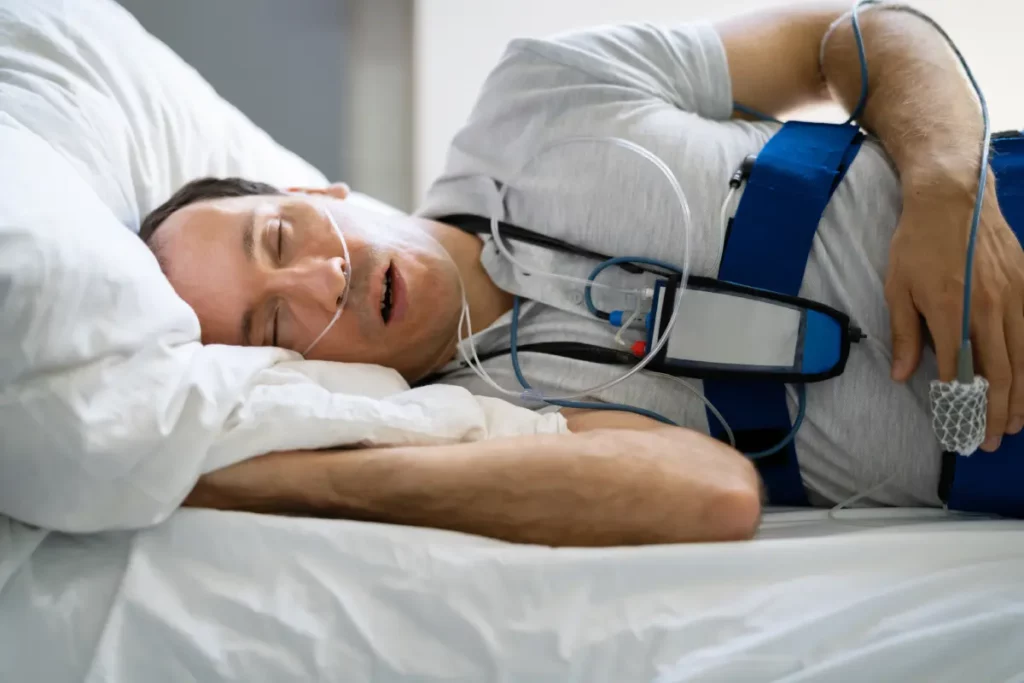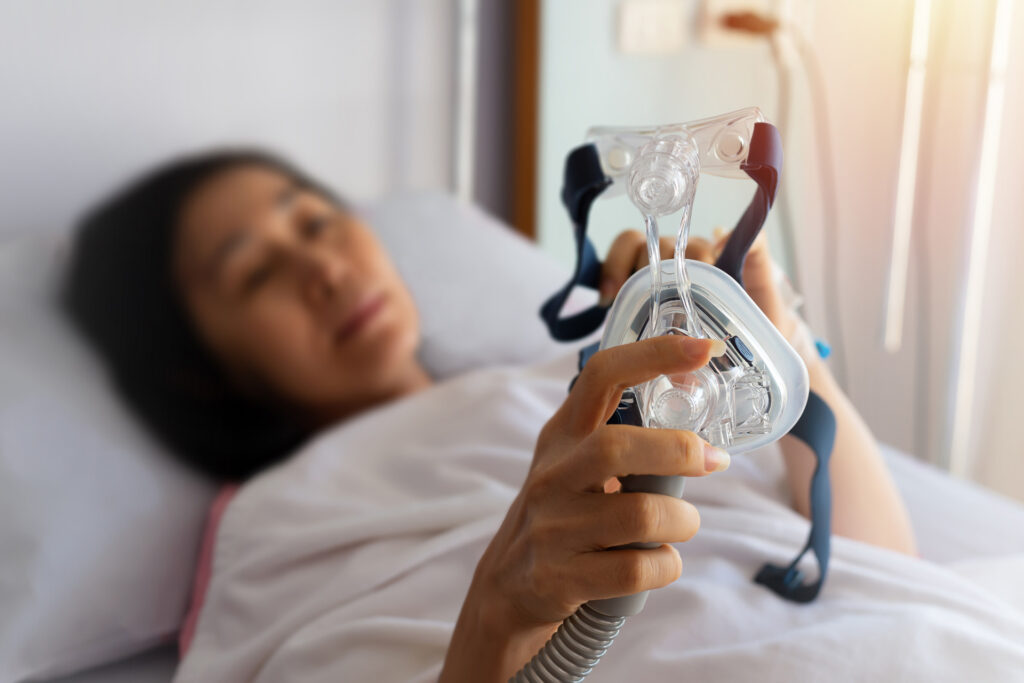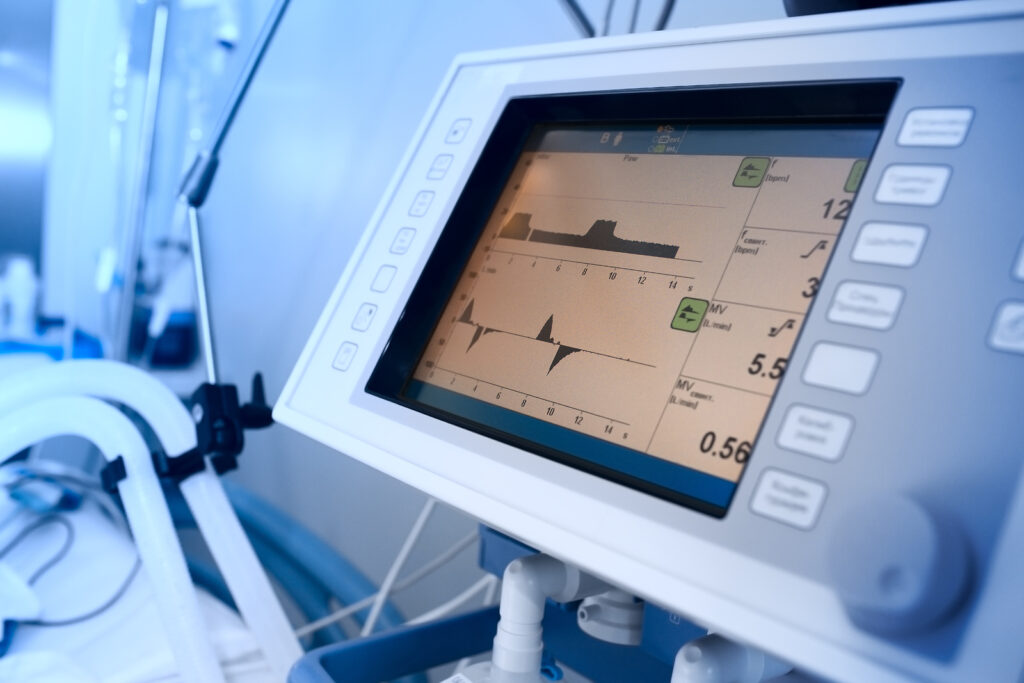Sleep disorders affect millions of Australians, significantly impacting physical health, mental wellbeing, and daily performance. From chronic insomnia to sleep apnoea, these conditions can lead to serious health complications when left undiagnosed and untreated.
Obstructive Sleep Apnoea (OSA), a common sleep disorder characterised by repeated breathing interruptions during sleep, requires precise diagnosis for effective treatment. The accuracy of diagnosis plays a crucial role in determining appropriate treatment paths and improving health outcomes.
Residents in major Australian cities have access to two primary diagnostic methods for sleep disorders:
- In-clinic Sleep Studies: Comprehensive overnight tests conducted in specialised sleep laboratories under direct medical supervision. For instance, sleep studies in Brisbane offer thorough assessments by professionals. Similar services are also available in other cities like Perth and Melbourne, as seen in sleep study Perth and sleep study Melbourne respectively.
- Home Sleep Tests: Convenient diagnostic tools that monitor sleep patterns in the comfort of one’s own bedroom
Each testing method offers distinct advantages and suits different patient needs. The choice between in-clinic and home sleep tests depends on various factors, including:
- Severity of symptoms
- Type of suspected sleep disorder
- Personal preferences
- Medical history
- Insurance coverage
This guide examines both testing options in detail, providing essential information to help residents make informed decisions about their sleep health. Understanding the differences between these diagnostic methods ensures patients receive the most appropriate testing for their specific situation. For those looking for more information on available services, Sleep Solutions Australia provides valuable resources and support.

Understanding Sleep Disorders and the Need for Testing
Sleep disorders affect millions of Australians, with Obstructive Sleep Apnoea (OSA) ranking as one of the most prevalent conditions. OSA occurs when the throat muscles intermittently relax during sleep, blocking the airway and causing breathing interruptions. These interruptions can happen hundreds of times per night, leading to:
- Loud snoring
- Gasping or choking during sleep
- Daytime fatigue
- Morning headaches
- Difficulty concentrating
The Importance of Early Diagnosis
Early diagnosis of sleep disorders proves critical for preventing serious health complications. Untreated OSA increases the risk of:
Learn more on: Sleep Testing in Brisbane Signs You May Need a Sleep Study
- Heart disease
- High blood pressure
- Type 2 diabetes
- Depression
- Workplace accidents
- Motor vehicle incidents
The Role of Sleep Tests in Diagnosis
Sleep tests serve as the gold standard for diagnosing sleep disorders. These diagnostic tools measure vital parameters during sleep, including:
- Breathing patterns
- Blood oxygen levels
- Heart rate
- Brain activity
- Body movements
The data collected through sleep testing enables sleep specialists to:
- Confirm the presence and severity of sleep disorders
- Identify specific patterns of breathing disruption
- Determine optimal treatment approaches
- Monitor treatment effectiveness
- Adjust therapy plans as needed

The Significance of Personalised Treatment Strategies
Sleep testing provides essential insights for developing personalised treatment strategies, particularly for conditions like OSA that require specific interventions such as CPAP therapy. In Australia, sleep studies are available in various cities including Sydney, Hobart, Adelaide, and Canberra, offering vital resources for those seeking help with their sleep disorders.
In-Clinic Sleep Tests: Pros and Cons
In-clinic sleep studies, also known as polysomnography, provide comprehensive diagnostic testing in specialised sleep facilities across Brisbane. These overnight assessments take place in private, hotel-style rooms equipped with advanced monitoring technology. Read more about assessments on https://pmc.ncbi.nlm.nih.gov/articles/PMC3068728/
Key Features of In-Clinic Studies:
- Advanced sensor monitoring of:
- Brain wave patterns (EEG)
- Eye movements
- Heart rhythm
- Breathing patterns
- Blood oxygen levels
- Muscle activity
- Body positioning
- Professional observation through video and audio recording systems captures physical movements and breathing sounds
Advantages:
- Detailed data collection for complex sleep disorders
- Real-time monitoring by trained sleep technicians
- Ability to detect multiple conditions in a single study
- Immediate assistance if medical intervention becomes necessary
Suitable for Patients with:
- Multiple suspected sleep disorders
- Significant health conditions
- Complex sleep-related symptoms
- Need for comprehensive neurological assessment
The controlled environment of sleep laboratories allows for precise measurements and detailed analysis of sleep architecture. Sleep technicians attach up to 30 sensors to specific points on the patient’s body, creating a complete picture of their sleep patterns and physiological responses throughout the night.
These in-depth studies prove particularly valuable for diagnosing conditions beyond sleep apnoea, including:
- Periodic limb movement disorder
- Narcolepsy
- REM sleep behaviour disorder
- Complex sleep-related breathing disorders
Home Sleep Tests: Pros and Cons
Home sleep tests offer a practical alternative to in-clinic studies through portable monitoring devices. These compact units attach to the patient’s body during sleep, collecting essential data about sleep patterns and breathing disturbances.
What Does Home Sleep Testing Involve?
The testing equipment typically includes:
- A small chest belt to measure breathing effort
- A finger probe for oxygen saturation monitoring
- Nasal cannula to track airflow
- Heart rate sensors
These devices record vital measurements throughout the night:
- Breathing patterns and rates
- Blood oxygen levels
- Heart rhythm
- Sleep position changes
- Snoring intensity
Advantages of Home Sleep Testing
A significant advantage of home sleep testing lies in the familiar sleep environment. Patients can maintain their regular bedtime routines, sleep in their own beds, and avoid the potential stress of staying overnight in a clinical setting.
Home sleep tests prove particularly effective for:
- Suspected obstructive sleep apnoea
- Patients with mobility limitations
- Those living in remote areas
- People with work or family commitments
The portable nature of these devices allows for multiple nights of testing when needed, providing a broader picture of sleep patterns across different circumstances.
Limitations of Home Sleep Testing
These tests suit patients with straightforward symptoms pointing towards breathing-related sleep disorders. The focused nature of home testing equipment makes it an ideal choice for initial screening and monitoring of less complex sleep issues.
Comparing In-Clinic vs Home Sleep Tests
A direct comparison between in-clinic and home sleep tests reveals distinct differences across several key factors:
1. Diagnostic Capabilities
- In-clinic tests capture 16+ channels of data, including brain waves, eye movements, and muscle activity
- Home tests focus on 4-7 primary channels, primarily monitoring breathing patterns and oxygen levels. Click here to find more about monitoring.
2. Cost Considerations
- In-clinic studies range from $500-$1,000 per night
- Home sleep tests typically cost $200-$400
- Medicare rebates available for both testing methods when meeting eligibility criteria
- Private health insurance coverage varies based on policy type and level of cover
3. Testing Environment
- In-clinic settings provide controlled conditions with minimal external interference
- Home environments offer natural sleep patterns in familiar surroundings
- Technical issues can be immediately addressed in clinics
- Home testing equipment malfunctions may require repeat studies
4. Patient Suitability
- In-clinic tests suit patients with:
- Multiple health conditions
- Complex sleep disorders
- Severe symptoms requiring immediate intervention
- Home tests appropriate for:
- Suspected straightforward sleep apnoea
- Patients without significant comorbidities
- Those unable to attend overnight clinic visits
5. Data Quality
- Clinical settings deliver comprehensive, high-quality recordings
- Home tests provide focused data sets sufficient for basic sleep apnoea diagnosis
- Technical failure rates: 2-5% in clinics vs 10-15% in home studies
The Patient Pathway for Diagnosis and Treatment in Brisbane
Air Liquide Healthcare’s Sleep Solutions delivers a comprehensive patient pathway for sleep disorder diagnosis and treatment across Brisbane. This integrative approach ensures patients receive continuous care from initial diagnosis through to ongoing therapy management.
The patient journey includes these essential steps:
1. Initial Consultation
- Assessment by qualified sleep specialists
- Review of sleep history and symptoms
- Selection of appropriate diagnostic test
2. Diagnostic Testing
- Completion of chosen sleep study
- Analysis by certified sleep technicians
- Validation of results by Sleep Physicians
3. Treatment Planning
- Personalised therapy recommendations
- CPAP device selection and fitting
- Mask fitting and education sessions
4. Therapy Initiation
- CPAP titration program
- Remote monitoring of therapy progress
- Technical support and adjustments
5. Ongoing Management
- Regular progress assessments
- Data analysis of CPAP usage
- Equipment maintenance checks
- Therapy optimisation as needed
Air Liquide Healthcare partners with leading CPAP equipment manufacturers through its sleep brands – SNORE Australia, Healthy Sleep Solutions, Mycroft, Complete Care, and Sleep Disorder Australia (SDCA). This collaboration ensures patients access the latest sleep therapy technologies and comprehensive support services.
Medicare benefits are available for eligible diagnostic tests meeting MBS guidelines, while various private health insurers offer coverage for CPAP therapy under specific packages.
Making the Right Choice: In-Clinic or Home Sleep Test?
Selecting the appropriate sleep test requires careful consideration of individual circumstances and symptoms. Here’s a practical guide to help evaluate which option might be most suitable:
Signs Indicating a Need for In-Clinic Testing:
- Complex sleep disorders beyond sleep apnea
- History of heart, lung, or neuromuscular conditions
- Severe daytime sleepiness affecting daily activities
- Previous inconclusive home sleep test results
- Suspected sleep behaviours requiring video monitoring
Considerations for Home Sleep Testing:
- Primary suspicion of sleep apnea
- Mild to moderate symptoms
- Regular sleep schedule without complex sleep issues
- Limited mobility or difficulty travelling to sleep clinics
- Preference for testing in familiar surroundings
The severity of symptoms plays a crucial role in determining the appropriate testing method. Patients experiencing mild symptoms such as occasional snoring might benefit from home testing, while those with multiple sleep-related issues require comprehensive in-clinic assessment.
A qualified Brisbane-based sleep specialist can evaluate specific symptoms, medical history, and lifestyle factors to recommend the most appropriate testing option. Sleep specialists possess expertise in identifying subtle indicators that might influence the choice between in-clinic and home testing methods.
The decision-making process should prioritise accurate diagnosis while considering personal circumstances, ensuring the chosen method aligns with individual needs and medical requirements.
Brisbane Sleep Test Locations: Where to Go?
Access to sleep testing facilities across Brisbane’s metropolitan area ensures patients can choose a convenient location for their diagnostic needs. Air Liquide Healthcare operates an extensive network of sleep testing centres through its affiliated brands, including SNORE Australia, Healthy Sleep Solutions, and Sleep Disorder Australia (SDCA).
Greater Brisbane Region Sleep Test Locations:
- North Brisbane: Morayfield Sleep Centre, Newstead Clinical Facility
- South Brisbane: Meadowbrook Testing Centre, Southport Sleep Laboratory
- East Brisbane: Birkdale Sleep Study Centre
- West Brisbane: Ipswich Sleep Testing Facility
- Gold Coast Region: Ormeau Sleep Centre
Each location provides specialised sleep testing services with state-of-the-art diagnostic equipment. These facilities offer both in-clinic overnight studies and home sleep test options, allowing patients to select the most suitable testing method based on their specific requirements.
The testing centres maintain high standards of patient care through qualified sleep technicians and modern monitoring equipment. Patients can expect comfortable, private rooms for overnight studies, while home sleep test equipment can be collected from any of these locations.
Medicare-approved sleep studies are available at all centres, subject to meeting eligibility criteria. Private health insurance holders might receive additional coverage benefits depending on their policy terms.
Conclusion
Selecting the right sleep test option in Brisbane requires careful consideration of individual circumstances and symptoms. A professional sleep specialist can provide personalised guidance based on specific health needs, lifestyle factors, and medical history.
Taking action against sleep disorders through appropriate testing leads to:
- Accurate diagnosis of underlying conditions
- Customised treatment plans
- Improved quality of life
- Better long-term health outcomes
The path to restful sleep starts with a single step – booking a consultation with a qualified sleep specialist. Brisbane residents can access comprehensive sleep testing services through various locations, making it convenient to prioritise their sleep health and well-being.
Ready to discover the best sleep test option for your needs? Contact a Brisbane sleep specialist today.

